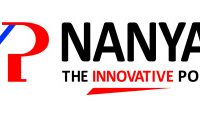Academics are an important factor in your child’s education, but they only make up one part of your little one’s preschool experience. High-quality and holistic preschool education is also characterised by integrated learning approaches that take your child’s physical, emotional, moral, and psychological attributes into consideration.
It’s in your best interest as a parent to look beyond scholarly activities and also think about the different enrichment programmes an educational institution can provide you with when you’re looking for a good preschool for your child. This will increase the chances that their unique needs are met and that all aspects of their development are nurtured. Your choice to look beyond academics may also keep your child on a path of life-long learning and growth—the kind that transpires even outside the classroom.
With this in mind, consider enrolling your child in a preschool that prioritises the following aspects of a well-rounded education:
1) Play-Based Learning
Research has shown that play-based learning is highly effective in promoting cognitive development, language skills, and social competence in young children. An educational framework that allows preschoolers to take the lead in their learning through play will help them cultivate a love for learning that goes beyond the marks they earn in their academics.
At quality preschools like Kinderland Singapore, for example, play-based learning is integrated into the curriculum in various ways. This may include structured activities such as building with blocks, role-playing, storytelling, and imaginative play. Kinderland’s approach incorporates a variety of activities in its curriculum that not only make learning fun, but also pique the interests of their students. Upon enrolling at Kinderland, kids may learn to use digital technology to express themselves in initiatives like the Literacy Through I.T. programme, integrating play with skills that will serve them well into their older years.
2) Critical Thinking and Problem-Solving
Good preschools also recognise the importance of nurturing a child’s critical thinking and problem-solving skills from the early years onwards. They know that children who have strong critical thinking and problem-solving skills are better equipped to work out the complexities of the world around them and adapt to new challenges as they arise. A top-tier preschool will provide its pupils with plenty of opportunities to develop these skills through various hands-on activities and exploration.
Activities such as puzzles, games, and STEM (science, technology, engineering, and mathematics) projects are commonly used to promote critical thinking and problem-solving skills in preschoolers. These activities will not only motivate children to think creatively, but also help them build perseverance and resilience on their own.
Another green flag for the preschool programme is if its educators encourage students to stay curious, make observations on their own, and seek creative solutions to real-world problems. Young pupils should be presented with open-ended questions and provided with moments for collaborative problem-solving with their peers. This is what will involve them in a culture of inquiry and exploration—one that’s much more exciting to be part of than a culture that simply values academic performance and not much more.
3) Social and Emotional Development
Social and emotional development is a cornerstone of preschool education, as it lays the groundwork for children’s future relationships and overall well-being. When a preschool values its students’ social and emotional development, the latter are better poised to communicate effectively, regulate their emotions, and develop empathy towards others. As such, you’ll want to look for a preschool that advocates for its pupils’ budding social and emotional skills alongside their academic development.
Explore an educational framework that will help your preschooler build strong interpersonal skills and emotional resilience, which may include cooperative games, group projects, and role-playing scenarios. Through these activities, your child will learn to collaborate with others, understand different perspectives, and express their feelings in healthy ways.
4) Physical Development
Beyond hitting the books, your choice of preschool should also support regular physical activity among students. After all, through exercise and play, children stay fit and active while enhancing their coordination and motor skills.
Enrol your child in an educational institution that gives its students plenty of time to enjoy a variety of activities, such as running, jumping, climbing, and playing with balls. The educational programme should also include fine motor activities, such as drawing, cutting, and threading beads, as these promote hand-eye coordination and dexterity and support interests that your preschooler may nurture in the future.
5) Cultural Awareness and Diversity
Cultural awareness and diversity are vital components of a well-rounded preschool education. It’s essential for young children to learn about and respect the diversity of people, cultures, and traditions around them, as it helps them become compassionate and culturally competent individuals.
Look for a preschool that embraces diversity and incorporates multicultural perspectives into its curriculum and activities. Teachers should actively expose students to a variety of cultures, languages, and traditions through stories, music, art, and celebrations from around the world. Through this kind of immersion, your preschooler can develop empathy, tolerance, and a sense of global citizenship that’s crucial for their life in the modern world.
6) Parent-Teacher Partnership
Lastly, you’ll want to look into a preschool that has a good track record not only for academic excellence, but strong partnerships between parents and teachers. Parents are a child’s first and most influential teachers, after all, and when they work collaboratively with preschool staff, children benefit from a cohesive and supportive learning environment for their academics and more.
Choose to enrol your child in a preschool that fosters open communication and collaboration between parents and teachers, knowing that this could shape your child’s education for the better. Engage your child’s preschool teachers about their progress, milestones, and challenges through regular updates, parent-teacher conferences, and informal conversations. And if you can, try to actively participate in your child’s preschool experience by volunteering in the classroom, regularly attending school events, and supporting learning at home with the guidance of your child’s teachers.
A more holistic learning environment is where your preschooler can thrive emotionally, socially, and physically as well as intellectually. In later years, after all, it’s not only book smarts that your child will depend on to excel, but the various skills they pick up from play, socialisation, exploration, and a healthy love of learning that goes beyond getting good grades. Keep these values close to you during your child’s preschool years, and they’ll be well-rounded students of life in the many years to come.






